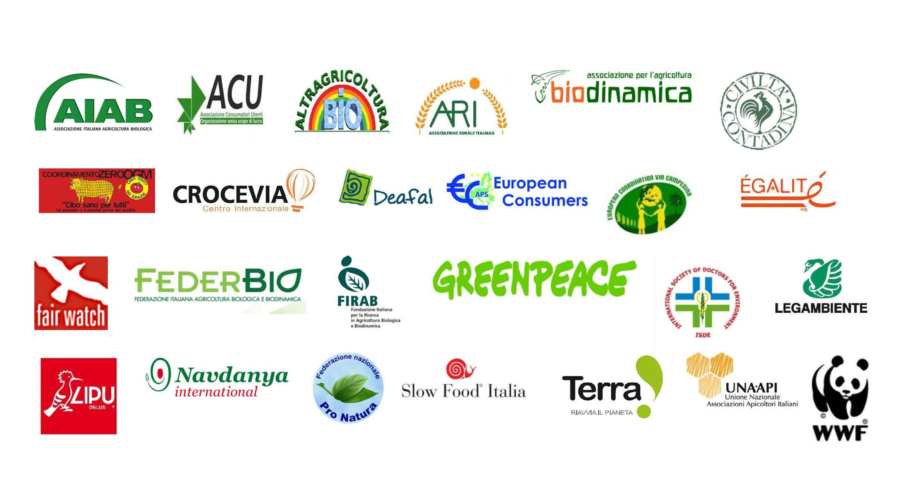“Thanks to the openness of the rapporteurs in charge of the dialogue with organic farmers’ organizations, environmental and consumer associations, and the support of the members of the Chamber’s Agriculture Committee, this attempt has been foiled for the moment.” This is the comment of the associations that started the mobilization after the Senate – instead – passed the bills during the Christmas holidays, right in the middle of the pandemic’s upswing. Not surprisingly, the mainstream media did not report the news. Right after the Chamber’s vote, the Agriculture Minister, Teresa Bellanova resigned, starting a political crisis in Italy. Nevertheless, the same minister, in the days before the vote, had made a last attempt to save her bills, advocating that NBTs are not GMOs. A position that was already discharged by the Court of Justice of the European Union on July 25, 2018.
As the associations underline in their press release, “The ugly chapter of the Senate Agriculture Committee’s recommendations has been overcome. The future Minister of Agriculture will be called to respect the constraints imposed by the opinions expressed in the Chamber. For all of them, in fact, it is asked that the sentence of the European Court of Justice is respected, which established that the rules existing today for GMOs are also applied to NBTs without exceptions or derogations, as well as that all references to GMOs in the decrees under examination are removed. Therefore, confirming the nature of Italy as a GMO-free country.”
Nevertheless the corporate assault is not over. As Navdanya International detailed in a recent article – The lobby behind Italy’s opening to GMOs – following the publication of the Court of Justice’s judgment, the European Union has been subject to incessant lobbying pressure from the United States and other trading partners for NBTs to not be absorbed by the existing GMO legislation. Commenting on the multiple defeats of agribusiness, the U.S. Secretary of Agriculture Sonny Perdue, defined the European Court’s ruling as “regressive and untimely”, announcing the willingness of his ministry to “redouble efforts” to convince European partners to change their approach. The meeting between Sonny Perdue and the Minister of Agriculture Teresa Bellanova took place at the end of January 2020 in Rome. NBTs were not missing among the topics of the meeting. This was the Italian Minister’s stance on the subject after the meeting: “Above all, I consider the importance of the collaboration in research and innovation, with particular regard to innovative techniques of plant genomics. We are also working at European level to make a clear distinction between these techniques and transgenic genetic modification.” A position, once again, defiant of the Court of Justice’s pronouncement.
As we celebrate the success of the Italian campaign, we must still underline the fact that the danger is not over, in Italy, in Europe, or in the rest of the world. The agribusiness lobby and their political allies will not stop their attempts to appropriate farmers seeds and people’s food, but this Italian movement has shown us a way to stop them. As Vandana Shiva, president of Navdanya International, commented learning the result of the vote in the Italian Chamber: “What happened is big, not just for Italy but for the world.”
________________________________________________
 Navdanya and the Navdanya movement were created by Dr. Vandana Shiva 30 years ago in India to defend Seed and Food sovereignty and small farmers around the world. Navdanya pioneered the movement of seed saving and seed freedom, which began in response to the crisis of erosion of agricultural biodiversity and introduction of GMOs and patents on seeds through intellectual property rights (IPRs) and so-called ‘free trade’ agreements. It has long fought against biopiracy, the patenting of indigenous knowledge by self-interested multinational corporations and won cases related to Neem, basmati rice and wheat in India. Navdanya promotes a new agricultural and economic paradigm, a culture of food for health, where ecological responsibility and economic justice replace the present greed, consumerism and competition which have become dominant in society. It aims at regaining the common good as a foundation for a renewed sense of community, solidarity and culture of peace. We strive to achieve these goals through the conservation, renewal and rejuvenation of the gifts of biodiversity we have received from nature and our ancestors, and to defend these gifts as commons. More…
Navdanya and the Navdanya movement were created by Dr. Vandana Shiva 30 years ago in India to defend Seed and Food sovereignty and small farmers around the world. Navdanya pioneered the movement of seed saving and seed freedom, which began in response to the crisis of erosion of agricultural biodiversity and introduction of GMOs and patents on seeds through intellectual property rights (IPRs) and so-called ‘free trade’ agreements. It has long fought against biopiracy, the patenting of indigenous knowledge by self-interested multinational corporations and won cases related to Neem, basmati rice and wheat in India. Navdanya promotes a new agricultural and economic paradigm, a culture of food for health, where ecological responsibility and economic justice replace the present greed, consumerism and competition which have become dominant in society. It aims at regaining the common good as a foundation for a renewed sense of community, solidarity and culture of peace. We strive to achieve these goals through the conservation, renewal and rejuvenation of the gifts of biodiversity we have received from nature and our ancestors, and to defend these gifts as commons. More…
